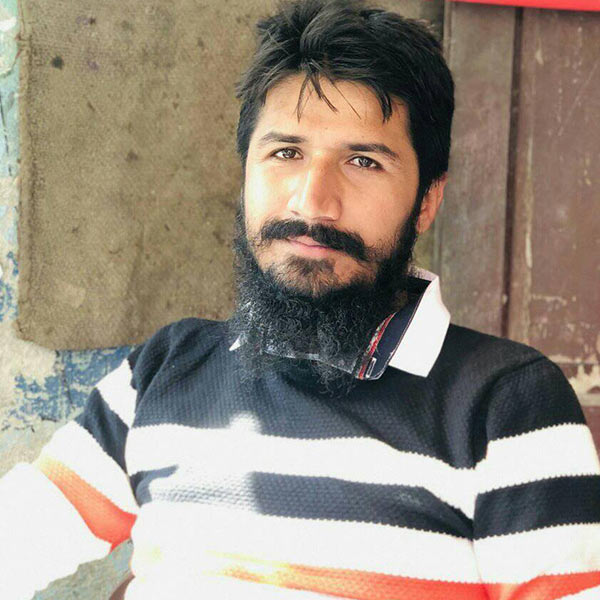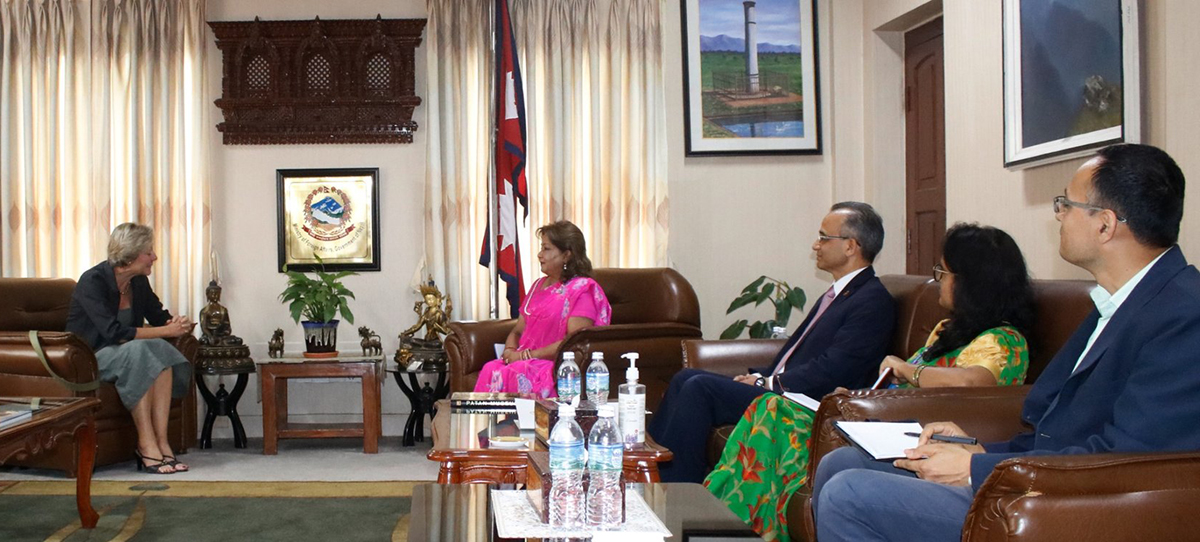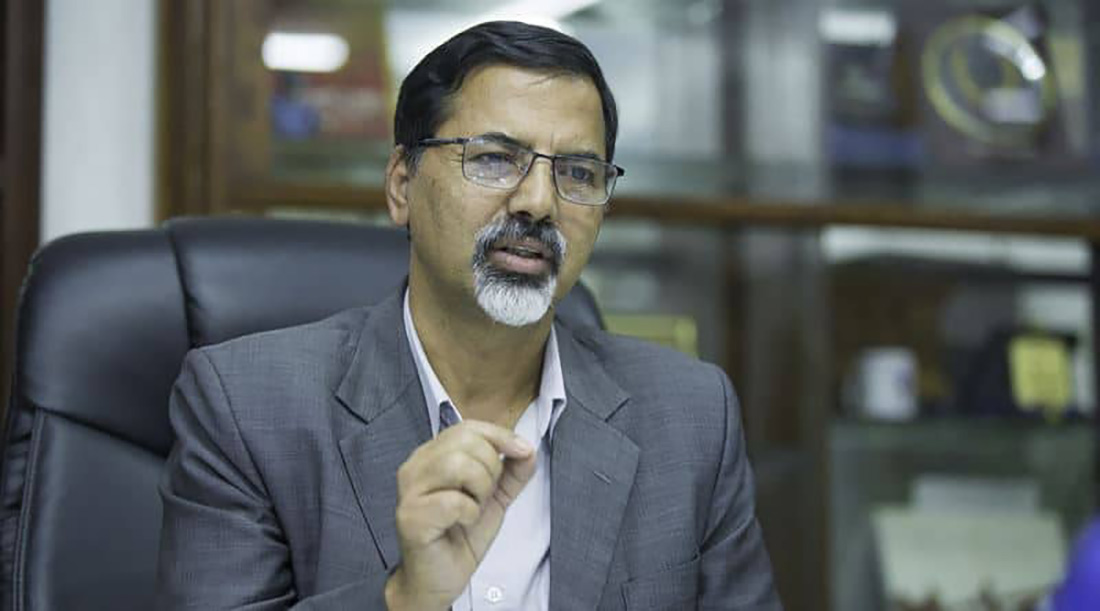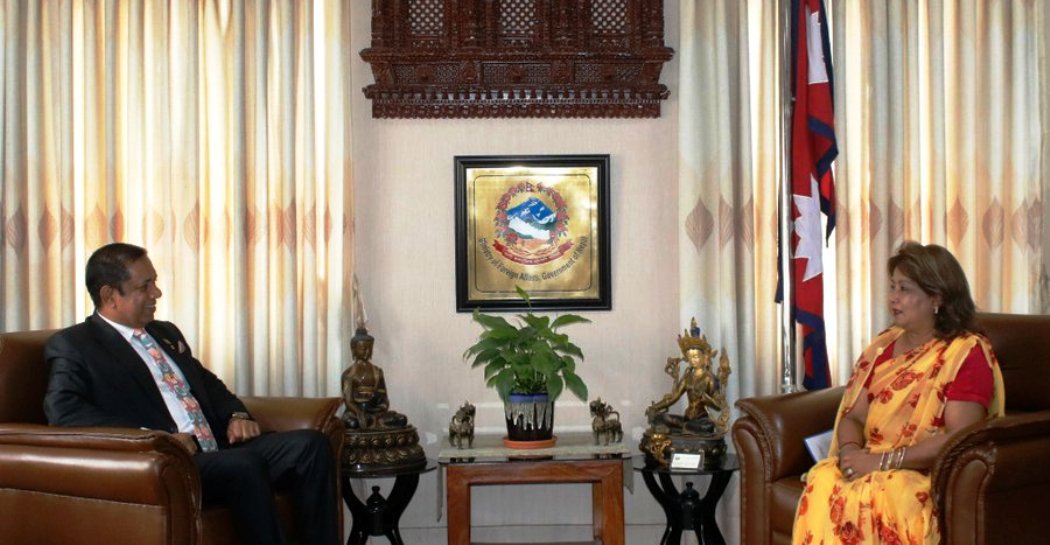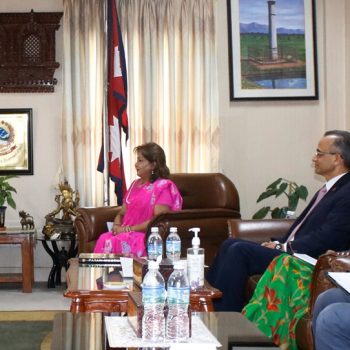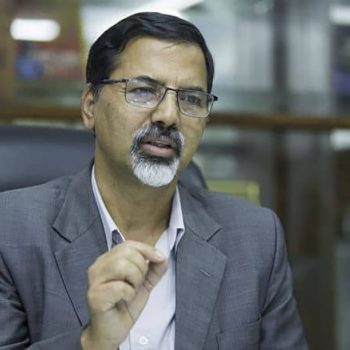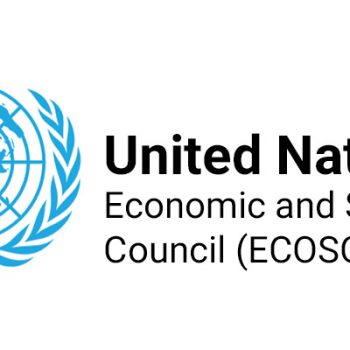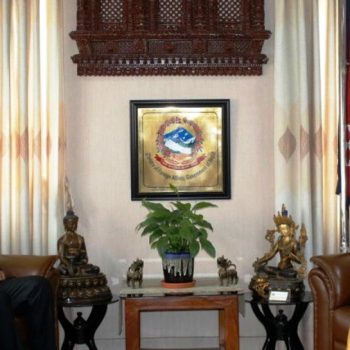‘Lots of Chinese youths are committed to rural development’
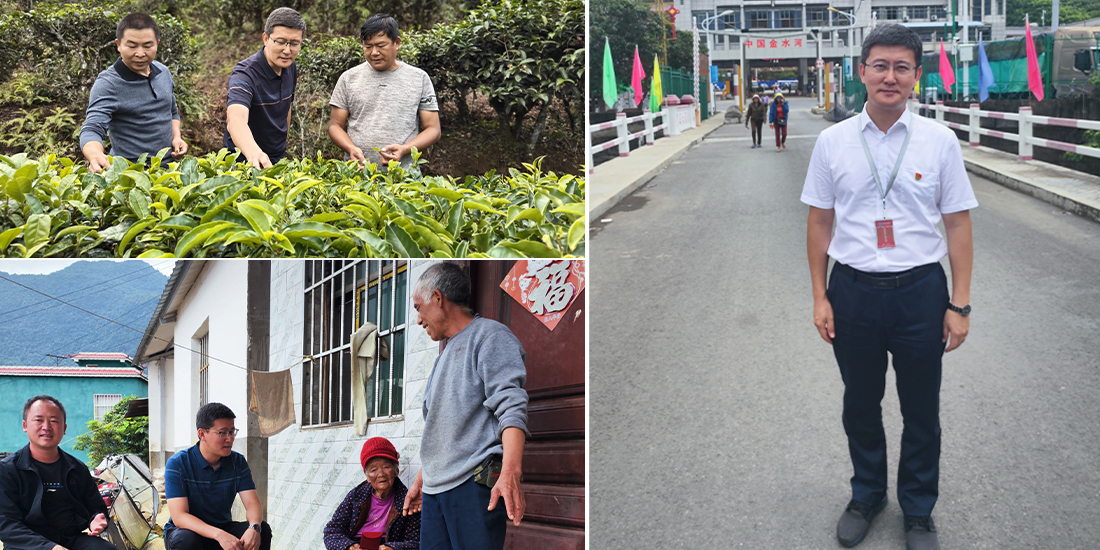
Mr. Sun Sen is originally from northern China’s Suihua city of Heilongjiang province. However, he is working as the Deputy Mayor of southern China’s Jinping County of Yunnan province. Yunnan is at the crossroads of Southeast Asia and South Asia. He has been to Nepal once. This introverted but English-fluent local government figure of China’s Jinping County, which borders Vietnam, has agreed to an interview with Nepal Press’s Birat Anupam. Excerpts:
Let us start talking from your 2006 Nepal visit. How did you happen to make footfall in Nepal? What are your impressions?
-Birat, it’s a pleasure to be interviewed.
In 2006, I visited Nepal for official business at the Chinese Embassy in Nepal. Even though it’s been over a decade, my trip to Nepal remains vivid in my memory. Kathmandu is an incredibly beautiful city and an amalgam of traditional and modern elements. The distant skyline is adorned with the Himalayan mountain range, and the city is bustling with tourists and mountaineers from various countries. There is a large number of temples in the city, all of which are architecturally stunning. China and Nepal are friendly neighboring countries, sharing geographical proximity and cultural affinities, and we have frequent exchanges between our two peoples. Personally, Nepal evokes a sense of familiarity in me.
You are very young. You speak very good English and you have good educational experience. Contrary to majority of youths with qualities like yours, you choose not to stay at urban center. Why did you choose this option?
– Thank you. Chinese society is open and inclusive; while some young people opt to thrive in urban settings, lots of others are committed to rural development. Urban life indeed offers comfort and convenience, but my decision to come to Jinping County gives me a chance to pitch in with rural revitalization by working alongside local officials and residents. Seeing people’s lives get better and children growing up healthily, I really find myself to be part of a worthwhile cause.
As a member of the Communist Party of China (CPC), I owe my quality education to the Party. Party members are tasked with serving in the areas where we are most needed by our motherland. The CPC adheres to a people-centered philosophy of development. Achieving common prosperity for all is always the CPC’s unwavering commitment. I take pride in contributing to the remarkable endeavor of economic and social development in the remote areas.
You are deputy head of Jinping County of Yunnan’s Honghe Prefecture. Your Jinping County is 477 kilometer away from provincial capital Kunming and 125 kilometer away from prefecture capital Mengzi. How easy or hard is it to be a leader of such location?
-Before coming to Jinping County, I had never been to Yunnan Province, and my knowledge of this area mainly came from what I had read about it. When I first arrived in Jinping about six months ago, I couldn’t quite understand the local dialect, and I wasn’t used to the spicy food here. Despite that, with a lot of support and help from colleagues and friends here, I began to fit in and develop an attachment to Jinping. The work here is quite different from what I used to do, including the what, where and how, but it directly serves grassroots development and closely connects with the daily life and work of the local people. That makes the work here immensely important and meaningful.
Despite new problems and challenges that could crop up as my work in Jinping continues, I believe that with the guidance and support of my leaders, the close collaboration with my colleagues, and the understanding and cooperation of the local residents, no challenge will be unconquerable.
I saw and experienced well-developed tunnels chains along the highway from Kunming-Mengzi-Jinping which ultimately goes to the borders of Vietnam via Jinshuihe port. When was it built? Could you share the experience of previous years without tunnels along that roadways?
-As a saying in China puts it, “if you want to get rich, build roads first.” With the mountainous and high-altitude terrain in Yunnan, road construction is both difficult and costly. A case in point is the section from the prefecture capital Mengzi to Jinping County, part of which is the Manhao-Jinping Expressway. There are 127 bridges and 16 tunnels along this 50.58-kilometer section. The proportion of the length of bridges and tunnels along this part is as high as 79.8%. Among these, the longest tunnel is the Caoguoshan Tunnel, stretching 7005 meters. Complex geological conditions make construction of the tunnel very difficult. However, Chinese engineering professionals, with their technological prowess and dauntlessness, overcame all challenges. The entire construction of the Manhao-Jinping Expressway took over 1000 days and has greatly facilitated travel for local residents and catalyzed the rapid development of Jinping.
If we look back to the 1990s, a trip from Jinping to Mengzi used to take a full day via provincial roads. In 2012, the Grade II road connecting Mengzi to Jinping was opened, significantly improving connectivity. The travel time from Jinping to Mengzi was then reduced to two and a half hours. By July 2022, with the completion of the Manhao-Jinping Expressway, one can travel from Jinping to Mengzi through expressways very comfortably in just 1 hour and 40 minutes.
Jinping’s number 1 primary school is named as ‘China-Equatorial Guinea Friendship Primary School’. China and Equatorial Guinea are thousands of miles away. What made them closer at the border county of China?
-This project represents a remarkable story of China-Africa friendship and cooperation. In April 2015, on the occasion of the 45th anniversary of the establishment of the diplomatic relations between China and Equatorial Guinea, President Obiang of the Republic of Equatorial Guinea visited China at the invitation of Chinese President Xi Jinping. During his visit, President Obiang announced the donation for the construction of the “China-Equatorial Guinea Friendship Primary School” in Jinping County, Yunnan Province, and Jinping No.1 Primary School wound up with the honor.
As President Obiang emphasized, since the establishment of diplomatic relations between the two countries, China has provided selfless assistance to Equatorial Guinea in various people-oriented projects such as hydro-power stations, roads, and hospitals, among others. The people of Equatorial Guinea are grateful and consider China as their brother.
In December 2016, the construction of the classroom building of “China-Equatorial Guinea Friendship Primary School” was completed and put into use. To commemorate the deep friendship between the two countries, Jinping No. 1 Primary School was renamed “China-Equatorial Guinea Friendship Primary School”.
I saw some boarding schools funded in partnership of China’s Ministry of Foreign Affairs and some private players. I saw Jinping People’s Hospital where doctors from Shanghai were serving local people. I saw governmental employees from province staying in the county for rural revitalization efforts. How do local government carry such endeavors with multiple sectors?
-Sharp observations. Jinping County has received assistance in education, healthcare, and numerous other fields, which exemplifies China’s distinctive approach to poverty alleviation. In 2021, all 832 poverty-stricken counties, including Jinping County, have been lifted out of absolute poverty, along with nearly 100 million impoverished rural residents. Behind this monumental achievement lies the CPC’s effort grounded in China’s national conditions. It has given full play to the institutional strength of socialism with Chinese characteristics in pooling resources for major undertakings, took targeted poverty alleviation measures, and adopting effective policies and working systems. Take Jinping County as an example, mechanisms such as Paired Assistance from the Ministry of Foreign Affairs, East-West Cooperation (aid from Changning District of Shanghai), medical and education assistance teams sent by the Organization Department of the Central Committee of CPC, and provincial, prefectural, and county-level residential aid teams have been implemented. There are specialized departments within the county government tasked with coordinating and facilitating assistance and support coming from different parties.
I’m from the Ministry of Foreign Affairs. Since 1992, our ministry has been providing paired assistance to Jinping County, investing a cumulative total of 284 million yuan over 31 years, implementing 987 aid projects in such areas as food security, education, healthcare, industry, holistic village development, and talent training, and bringing tangible benefits to the people of Jinping. The Ministry of Foreign Affairs has also sent representatives to Jinping to serve as deputy county head as part of this aid initiative. I am the 20th representative designated by the Ministry of Foreign Affairs.
Regarding medical experts from Shanghai, they are from Zhongshan Hospital which is affiliated with Fudan University, and are among China’s top doctors. They have come as members of medical teams to Jinping. Additionally, people from provincial, prefectural and county-level governments participate in the residential aid teams. Some enterprises, social organizations, and philanthropists are also involved in charitable activities in Jinping, each playing a unique role in contributing to the county’s development.
Your county is bordering Vietnam and it is the unique county with minority as the majority. For example, nine ethnic groups, Yao, Dai, Hani, Yi, Zhuang, Lahu (Kucong)m Bulang (Mang) ethnic group amounting 88.35 percent of local populace. How does local government take advantage of such geopolitical proximity and ethnic diversity?
-Jinping County borders Vietnam and possesses a national first-class port named Jinshuihe, which give it unique advantages for border trade. Home to nine ethnic groups including the Miao, Yao, Dai, Hani, Yi, Han, Zhuang, Lahu, and Bulang, Jinping County embodies unity and harmony of all ethnic groups, which can be described as a pomegranate with its seeds tightly bound together, and inclusivity of diverse cultures. Its full name, Jinping Miao, Yao, and Dai Autonomous County, exemplifies its practice of the System of Regional Ethnic Autonomy and protection of the rights and interests of all ethnic minorities in accordance with the law. Sharing a 502-kilometer border with Vietnam, some ethnic groups such as Dai and Yao reside in the border areas of China and Vietnam, with similar languages and cultural customs and a natural sense of kinship.
This geographical advantage and cultural proximity lay a solid foundation for Jinping County’s opening up policy along the border area. Committed to opening itself up, Jinping provides facilitation not only to all ethnic groups within the county but also to cooperation and exchanges between the peoples of China and Vietnam for common development.
Based on Chinese governmental data, Jinping County is known for longevity. For example, the average lifespan of this county is 79.3 years which is 2 years more than China’s national average. There are 63 centenarians in the 320,100 plus total populace of the county. How is it possible? It has genetic, environmental or some governmental factors?
-Jinping County boasts abundant natural resources, with a forest coverage rate of 63.94%, 100% of good air quality year-round, and an annual average concentration of negative oxygen ions exceeding 2754/cm³. This has earned it the distinction of being Yunnan Province’s first “Natural Oxygen Bar of China”, laying a solid environmental foundation for health and longevity. In December 2019, Jinping County has passed strict assessments and met the standard for all 8 indicators including ecological environment, forest coverage, and air quality, earning the official title of “Longevity Township.” It stands as the first and currently the sole “Longevity Township” in Yunnan Province. We warmly welcome visitors from around the world to experience health and wellness tourism in Jinping.
It is a question of science as for whether or not longevity runs in people’s genes. The Jinping County government is collaborating with relevant research bodies on the genetics of longevity, and developing the health and longevity industry to make the benefits of longevity accessible to a wider population.
Anything you want to add which is not asked earlier.
-I would like to take this opportunity to say a few words to the Nepalese readership.
First, I extend a warm welcome to you to Jinping County. The scenery, hospitality, and environment here are truly one of kind. Jinping is home to the unique “China Butterfly Valley.” From late May to early June each year, you can witness the breathtaking spectacle of hundreds of millions of butterflies fluttering in the sky. Do come to Jinping for a memorable experience of beautiful butterflies, splashing waterfalls, delectable cuisines and so much more.
Second, I look forward to closer cooperation with our friends in Nepal. The Chinese often say that it is better to have a close neighbor than a distant relative. China pursues friendship and partnership with our neighbors, seeks an amicable, secure and prosperous neighborhood, and follows a neighborhood policy featuring amity, sincerity, mutual benefit and inclusiveness. The Chinese economy has strong resilience, tremendous potential and great vitality. The fundamentals sustaining China’s long-term growth remains unchanged. This will inevitably bring more benefits to its neighboring countries. Yunnan Province serves as China’s gateway to South Asia and hosts the China-South Asia Expo annually. This year, in August, Vice President Yadav of Nepal attended the Expo in Kunming. Jinping County also had representatives at the Expo. We look forward to more practical cooperation with Nepal going forward.
Thank you.


